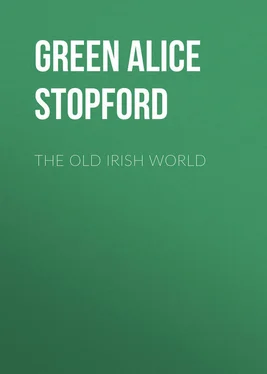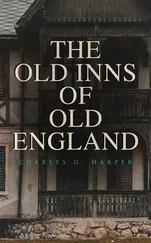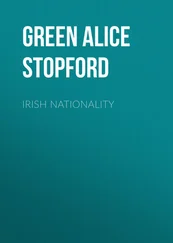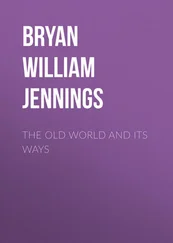Alice Green - The Old Irish World
Здесь есть возможность читать онлайн «Alice Green - The Old Irish World» — ознакомительный отрывок электронной книги совершенно бесплатно, а после прочтения отрывка купить полную версию. В некоторых случаях можно слушать аудио, скачать через торрент в формате fb2 и присутствует краткое содержание. Жанр: literature_19, foreign_antique, foreign_prose, Историческая проза, на английском языке. Описание произведения, (предисловие) а так же отзывы посетителей доступны на портале библиотеки ЛибКат.
- Название:The Old Irish World
- Автор:
- Жанр:
- Год:неизвестен
- ISBN:нет данных
- Рейтинг книги:4 / 5. Голосов: 1
-
Избранное:Добавить в избранное
- Отзывы:
-
Ваша оценка:
- 80
- 1
- 2
- 3
- 4
- 5
The Old Irish World: краткое содержание, описание и аннотация
Предлагаем к чтению аннотацию, описание, краткое содержание или предисловие (зависит от того, что написал сам автор книги «The Old Irish World»). Если вы не нашли необходимую информацию о книге — напишите в комментариях, мы постараемся отыскать её.
The Old Irish World — читать онлайн ознакомительный отрывок
Ниже представлен текст книги, разбитый по страницам. Система сохранения места последней прочитанной страницы, позволяет с удобством читать онлайн бесплатно книгу «The Old Irish World», без необходимости каждый раз заново искать на чём Вы остановились. Поставьте закладку, и сможете в любой момент перейти на страницу, на которой закончили чтение.
Интервал:
Закладка:
English writers have forgotten a grave disadvantage to themselves in the moral tale of the good and bad man (besides its incredibility and its dullness). In this version of Irish history the Englishman’s triumph remains a poor thing, destitute of interest or value, where the fame of the victor is abased and confounded by the worthlessness of his foe. The Irish warriors are mostly described as drunkards, cowards, and barbarians. Dr. Mahaffy likens Shane O’Neill to a Moor or a Zulu. Hugh of Tyrone “was a polished courtier on the surface, with a barbarous core.” Here is Mr. Bagwell’s portrait of Shane, whose organisation and defence of Ulster cost Elizabeth over £147,000 of English money (in modern money probably over £1,500,000) without counting the enormous cesses laid on the country, and three thousand five hundred of her soldiers slain. “He is said to have been a glutton, and was certainly a drunkard.” The story of drunkenness seems to have originated in his mud-baths, such as are now commonly ordered for rheumatism. Once started, the fable was persistent. “That drunken brain was, nevertheless, clear enough to baffle Elizabeth for a long time.” His conduct of a war which cost Elizabeth so much is described: – “Shane, who had been indulging as usual in wine or whisky, came up at the moment.” “Shane, who was never remarkable for dashing courage, retired into the wood.” “Shane, whose reputation for courage is not high, slipped out at the back of his tent.” So, I believe, did de Wet, instead of waiting to be killed. At the last, “the love of liquor probably caused his death”; here indeed Mr. Bagwell contradicts the Lord Deputy Sidney himself, who boasts that Shane was tricked and murdered by a Scotsman in Sidney’s pay, the last of a series of attempts at assassination. From the point of view that “barbarians” are usually childish, Mr. Bagwell tells how the important chiefs, MacWilliam Burke and MacGillapatrick, were given titles and robes of Earl and Baron, “in the belief that titles and little acts of civility would weigh more with these rude men than a display of force.” He complains that the best-laid English military plans of occupation of this country, instead of proceeding without interruption from the natives, might be “frustrated by one of those unexpected acts of treachery in which Irish history abounds.” However, even in treachery the Irish were incompetent. “Irish plots are commonly woven in sand.” “In this, as in so many other Irish insurrections, there was no want of double traitors; of men who had neither the constancy to remain loyal, nor the courage to persevere in rebellion.”
With such a rabble we can only wonder that there was any need of an English army at all; or how the conflict could last a year (not to say a few hundreds of them); or why England should have sent over her very best generals, her stoutest governors, and a prodigious deal of her gold. It was the bogs, apparently, that swallowed up those inconceivable hosts and coins.
Under the “savage” theory military matters lose all interest; but they are given to us with pitiless detail. Expeditions of soldiers against famine-stricken peasants without arms, raids of mere slaughter, the chasing of outlaws from a lake island, are described with the minuteness of a genuine campaign. These things, no doubt, are in the books. There are plenty of reports from officials, very humanly anxious to justify themselves or to magnify their feats. But history after all claims some revising power, and we need another standard of proportion than the vanity of a lieutenant. It is impossible to give vitality to a story in which highly armed and civilised Englishmen are represented as wiping out with cannon and gunpowder a savage and unarmed crowd of peasants – in which honour, courage, and progress are supposed to be eternally confronted with chicanery, barbarity, and treachery. No one wants to hear that tale. Such a history turns to inconceivable tediousness, of no use to any living soul.
Meanwhile vast tracts of history have been set aside as apparently not worth exploring. Where, for example, shall we find a serious account, with the guidance of modern scholarship, of the hundred and fifty years between the battle of Clontarf and the landing of the Norman barons. The people were no longer in the tribal state. The change to a kind of feudalism had come. What was the form of that feudalism? How did it differ from the system that had grown out of other conditions elsewhere? There is not so much as a chapter in any book, or a pamphlet, occupied with the land system of the earlier middle ages, what changes the Norman settlement brought, or what forms of social life did actually exist. The campaign of Edward Bruce is usually said to be a central turning point in Irish history, but who will guide us to any adequate study of it? There are no monographs on Desmonds, O’Neills, O’Donnells, Fitzgeralds, Butlers, Clanrickards, and so on. No annals of the provinces or kingdoms have been compiled, nor chronologies. The work of the two great Earls of Kildare is one of the most critical periods of Irish history: it still awaits a historian. Who has examined the history of the schools and education? Who has worked out the industrial development? How can we learn what were the negotiations by which Henry viii. carried the claim to be King of Ireland? Here are fields too long deserted waiting for workers. Here are a few of the immense voids, into which our writers fling, like bundles of dried straw, their vain words – “savage,” “primeval,” “lawless,” “brutish,” and the rest. In the history of Ireland nothing has been completed. That which is unknown disturbs, and may overturn the vulgar conclusions from the fragments known. We are for ever walking through a country unmapped. To be sure it is full of sign-posts put up at hazard – “To English Civilisation.” Where every road is marked to lead to the same inn, why should travellers discuss, debate, and ask questions? What reason can there be to loiter by the way? The English fingerpost is always there.
Some day perhaps the Irish race in this island will no longer seem to lie beyond the need, and below the honour, of the historical method. Ireland will have a history like other nations. It is possible to conceive that out of its peoples, English or Irish, there may arise some great thinker or poet who will set before us the two civilizations that have met here; in other words, the efforts by which two highly endowed races endeavoured to solve the problem that has perplexed every people that has ever yet appeared in this world – how to shape a community where men may live in safety, freedom, and happiness. The Celts had waged the fight for their civilization to the walls of Rome itself. They had left the valleys of the Danube and the Rhine and the plains of Gaul red with their blood. Now, on the outermost border of the world their last conflict awaited them. Within the mountain rim of Ireland, with silent Nature to keep the lists, two peoples met to fight out the last issues on that fatal soil. Here, imprisoned by the Ocean, the antagonists stood for centuries to their battle: every passion exalted, the splendours of courage, the majesty of despair, all skill of surprises, all glory of chivalry, triumph and sorrow, Christian pieties, and the surging up amid the upheaval of human nature of the mysterious superstitions of elemental man, and of his ferocities. What affections of race lay behind such a struggle? What was its meaning? What of beauty, of happiness, or of virtue did each civilization in fact offer to man? What was gained, what was lost? Here would have been a history of fire and flame, a new outlook on the fate of commonwealths, a theme worthy of an English or an Irish patriot.
In the long task of giving its true balance to the history of Ireland, by the discovery of all the facts, and the adjudging of their place, controversy will be lively. Every Irishman for certain will be ready for a battle of wits. But let us keep our intelligence perfectly clear on one point. We shall hear a great deal of “impartiality” and a “judicial mind.” Here we must make no mistake. Impartiality of intellect need not mean insensibility of heart. Let us suppose that the intellect should have no pre-possession at all, not even in favour of English civilization, nor of the idol of the market-place, “the Wealth of Nations” – its delicate balance should drop now on this side, now on that, without a shadow of prejudice or a hint of obstinacy, abhorrent of convention, with never a predilection. But impartiality of the heart – that is another matter. Who will pretend to comprehend human life who has no great affection of the soul? The generous heart knows no balancing hesitation between the man who deserts his country and the man who defends it; he alone can interpret the hero in whose soul some answering passion flames; and I suppose that the understanding of a commonwealth will best come to him who is most responsive to a variety of human emotions. I think we could do with a change of partialities in Ireland – fewer orthodox predilections of the head, if it might be so, and some illumination from the heart.
Читать дальшеИнтервал:
Закладка:
Похожие книги на «The Old Irish World»
Представляем Вашему вниманию похожие книги на «The Old Irish World» списком для выбора. Мы отобрали схожую по названию и смыслу литературу в надежде предоставить читателям больше вариантов отыскать новые, интересные, ещё непрочитанные произведения.
Обсуждение, отзывы о книге «The Old Irish World» и просто собственные мнения читателей. Оставьте ваши комментарии, напишите, что Вы думаете о произведении, его смысле или главных героях. Укажите что конкретно понравилось, а что нет, и почему Вы так считаете.












